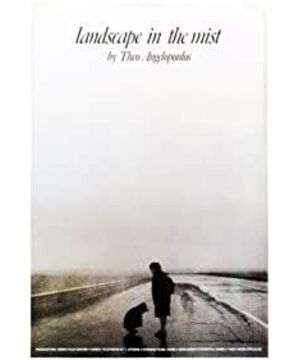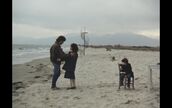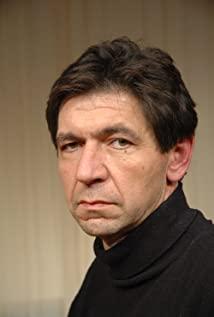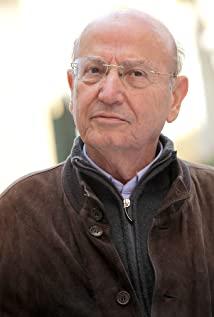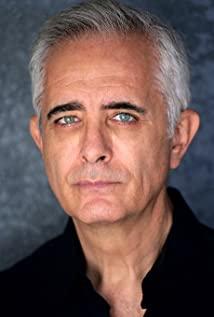For film and television criticism, Mr. Shao Mujun divides it into two levels: "pre-level comment and post-level research". At the same time, he believes that film and television research, especially film research, is not mainly a study of ontology, but a type of research transferred from methodology. The famous film and television scholar and critic Dai Jinhua's "Landscape in the Mist: 1978-1998 Chinese Film Culture", as a masterpiece of image interpretation and cultural research that not only sees through the film itself but also observes the multi-dimensional "cultural mirror city" in recent years, it is not only a practice He advocates the thinking and perspective of genre research, and has successfully realized the leap of "pre-level comments and post-level research". The term "Landscape in the Mist" is derived from the name of a Greek film. In the book "Invisible Writing-Cultural Studies in the 1990s" published in 1999, Dai Jinhua used it to refer to the sixth generation of film directors as "after" The expression of "modern" encounters the living conditions and creative circumstances in the "predicament and breakthrough" of the "pre-industrial reality". In this new book, "Landscape in the Mist" naturally became the name of "Chinese Film Culture in 1978-1998", reflecting the author's preference for "Landscape in the Mist". This book is a collection of research papers on film culture written by Dai Jinhua since 1987. Although the completion of these results spanned more than ten years, the unity of language expression style and thought expression style made the value of this diachronic and follow-up research more prominent.
The fourth generation of
youth tragedy and humanitarianism:
The creation of the first issue of the fourth generation (79-81) confronts the ten-year history of the Cultural Revolution, but presents this period of historical fate as a classical love-style youth tragedy, a sad and stale humanitarian appeal gesture . As direct participants of the Cultural Revolution, they tried to participate in the bloodstain of the unconscious murder squad with the tears of the youth tragedy of individual life history, and resolved and explained this absurd historical catastrophe with the conventional propositions of humanity, humanity, civilization and barbarism. "The fourth generation of film directors in a humanitarian warmth, in order to publicize human nature, understanding, conscience gradually obscured the personal foul blood stained clothes of others"
stylized:
the fourth generation of its artistic director on the film in the Declaration " In Modernization of Language, Bazin’s documentary aesthetics is used as his artistic banner. Dai pointed out that this is actually a historical misunderstanding. What they hide under the discourse of documentary aesthetics is their hunger and thirst for the beauty of form, style, and modeling. Pursue. Therefore, what is presented on their screen is not the "recovery of the material world", but a reconstructed expression of reality in order to achieve the continuation of the spirit and the self-salvation of the soul.
With the help of style and modeling, the strategy adopted by the fourth generation is "the advantage of space over time"-that is, to suspend time and history and complete the reorganization of reality in the spatial structure. They use style and modeling to construct a new order of discourse and symbols, enabling them to tell stories about the "children of the great age" and "youth in the flames of war" that are different from the third-generation directors. Instead, they are about "self". story.
Result:
However, their attempt to escape from the times and their efforts to reclaim the hostages from history ultimately failed. First of all, their lives themselves are full of social and historical events. Their personal destiny can only be the destiny created by the times and history. Therefore, they are eager to tell about themselves, but they only tell about the times in which they lived. Secondly, their "personality" cannot be highlighted in a uniform social structure, so they hope to find the decentralization of personal discourse in the mainstream political discourse, and ultimately can only become the center of the marginal discourse. Therefore, as mentioned before, the Leaning Tower is built on the land of reality. Therefore, the Leaning Tower will eventually collapse, and the fourth-generation directors will eventually fall back to reality, experiencing a new daze and Zhang Huang.
"In the world of life, suddenly like a traveler"-Han "Nineteen Ancient Poems·Part 3"
(1)
"Landscape in the Mist" filmed in 1988, won the Silver Lion Award at the Venice Film Festival. The plot of the film is very simple. In a city in Greece, twelve-year-old sister Woola and five-year-old brother Alexander quietly boarded the train bound for Germany to find his father who had never met. Their journey has been bumpy. They were driven off by the conductor because they didn’t buy a ticket. They were told by their uncle (or uncle) that they were actually illegitimate children. A traveling theater of Greek tragedy, Woola has a hazy affection for the troupe actor Orestes. After a long journey, the siblings finally reached the place of their dreams. But is the scenery slowly emerging in the fog their home in their hearts?
The whole film is unified in a clear blue, calmly in melancholy. This is exactly the tolerance of the two little protagonists in the film. This is also the color of their homeland. More than ten years ago, there was a popular TV movie in China that created the term "blue ocean civilization". This marine civilization happened to originate in Greece. Since then, the Greece I imagined is a deep blue.
A large number of long shots and fixed camera positions tell us about the travels of the two little protagonists in a calm and calm manner. The movement of the camera often carries the rhythm of poetry, just like unfolding a "scattered perspective" Chinese landscape scroll for the audience. The ritual-like scenes and the lines of some poetry recitation tests make the viewer seem to be watching a deep and solemn Greek classical drama. The constantly appearing empty roads, unmanned stations, and rushing trains made us and our wandering sisters and brothers appreciate the sadness and loneliness on the way. That dilapidated factory building, like a huge excavator like a monster in a Hollywood movie, seems to imply the erosion of human homeland by modern industrial civilization.
(two)
This is a story of finding a father. The "father" in the film may or may not exist. It is said that "he" is in Germany. And here in Germany, just like the scenery in the fog, the shadows and measures are beyond reach. As the uncle they met on the way said, "Germany...is a great lie...Is it to give people a dream?" It can be seen that the so-called "Germany" is just a metaphor, an ideal in the hearts of children. Heaven. In fact, at the beginning of the film, the director conveyed this message. The siblings are planning a trip, and the elder sister recites the "Bible Genesis" for the younger brother in the dark: "At first there was chaos, then there was light, and then the light and darkness separated..." At this time, the mother nudged outside. In the door of the room, the light cuts the darkness through the crack of the door, and gradually leads us into the world of these two children. Then they set off. This is clearly telling us that the long journey of Woola and Alexander is a story related to the origin of mankind.
We know that in the Western context, there is a Father who is always capitalized-God. After he created the light and darkness, the heavens and the earth, "there is fog rising from the ground, moisturizing the earth," he used the dust on the ground to create "a living being with spirit"-human beings were born in a foggy landscape. Then they were expelled from the Garden of Eden and scattered all over the world. But for thousands of years, mankind has returned to the Father's Paradise and the ideal of seeking eternal life has never ceased. Therefore, searching for the "father" and looking for the scenery in the fog is the effort of human beings to return to the birthplace. To find your father is to return to your hometown.
This reminds us of the journey back home in "Odyssey": the heroic Odysseus wandered at sea for ten years, overcoming all kinds of difficulties with firm belief, and finally moved the gods and was able to return to his hometown. Returning home, or wandering, may be a common motif in Eastern and Western cultures. In our well-known stories, the reincarnated Tang Seng of Jin Chanzi has gone through catastrophes and returned to the Western Heavenly Realm to which he belonged in his previous life; and "Thinking of Journey" is the subject of repeated chanting by many literati and poets. Those who return home need great perseverance to overcome numerous difficulties and resist all kinds of temptations. This is an inevitable process of free will overcoming all kinds of temptations. In the temper of these layers of suffering, the light of human nature burst out. Therefore, the process of returning home is the process of achieving the nobility of human nature, and the process of drawing closer to the divine nature.
The process of returning home is also the process of human growth. The two children in the film mature in wandering. Woola bid farewell to his mother and took his younger brother away from home, and directly assumed the duties of an adult. She suffered humiliation, walked through her ignorant first love, said goodbye firmly to the person she loved, and embarked on a long journey on her own. At the last station they passed, the young Woola had already begun to understand how to exchange beauty with men for travel expenses-she quickly learned the rules of the game in the adult world. The five-year-old Alexander possesses a calmness that is rare at his age. He took all the hardships he experienced during the journey indifferently. When the restaurant owner forced him to wipe the table in exchange for bread, he did not forget to sit down first, listen carefully to the performance of a wandering violinist, and then sincerely applaud. Only when facing a dying horse lying on the ground in a snowy night, Alexander couldn't help crying. Seeing the passing of a life with your own eyes makes the child feel the impermanence of existence prematurely.
(3)
If returning to the hometown is the victory of man's free will over the inevitability of fate, then Wuula's love is the crush of free will in front of fate - she fell in love with someone who cannot be loved. Orestes, the only person who has given her warmth during the long journey, the only one who is willing to kneel before her and look up at her with respect, this handsome young man who looks like an ancient Greek statue, is a homosexual. . In the morning when they were parting, they watched a helicopter salvaging a huge stone sculpture of a hand by the sea. The huge hand that rose slowly pointed to the ground from the sky savagely. Is that the God of Destiny warning these two young people? No wonder Orestes shouted desperately to the sky: "I shout loudly, is there any angel that can hear you?" This is not exactly Oedipus' painful cry: "Oh destiny, where have you jumped? ? "
when the moment of parting came, still deserted road at midnight, no words, no tears, only a hug, two long standing figure. The camera slowly revolves around the two, seeming to gently soothe the two suffering hearts. When Woola slowly picked up the backpack from the ground, her back was slightly tilted forward, and her thin body was full of divine brilliance. I think that at this moment, those gods who promised Odysseus to return home have also granted permission for Wu La to return home. When Orestes waved to the two siblings who were rushing away, the camera slowly lifted, staring at him lightly from the air. Is this the impermanent god of destiny showing a little compassion?
The ancestors of China regarded parting as "sullen ecstasy" (Jiang Yan's "Farewell"), the bitterness in the hearts of those involved; while the tragic difference in Greece, in the midst of struggle and destruction, mourned the common destiny of all mankind- All living beings, who can defeat the giant hand of fate?
(4)
The end of the journey has finally come. Woola and Alexander crossed the "border" and came to "Germany". The screen was completely black for tens of seconds, and then a small boat flashed in one corner of the screen, and then it was completely black for about seven or eight seconds. This is reminiscent of the maze crossing that Jia Baoyu encountered when he was sleeping in the illusory realm in "Dream of Red Mansions", "It is deep and thousands of miles away... There is only one raft... But those who are destined to cross it." Then there is a thick fog, The older sister is calling the younger brother to get up. "At first, there was some chaos, and then there was light..." As Alexander recites the chapter in "Genesis", the dense fog slowly faded, and a large tree clearly emerged on the horizon. The siblings ran over and hugged the tree tightly. Perhaps, this is the tree of life in the Garden of Eden that enables people to live with God, right? They finally returned to their eternal homeland.
It is said that this was not the case at the beginning of the script. Angelopoulos wanted to make the two children disappear into the thick fog. When his seven-year-old daughter saw the script, she cried: "Where is the father? Where is the home?". So he let the siblings get through the "maze" and hugged the tree of life. Angelopoulos said to his daughter, "If you want, you can recreate the world. Just like this, with a light wave of your hand, the fog will disappear." (Huang Xiaoxie, "Sweat Hands Clench Wild Flowers") The
seven-year-old girl has not yet tasted the heaviness of life. In reality, the ending will probably be what the director of Anglia originally envisioned-lofty ideals are often fruitless. "Retrospective follow it, the road is long and long; Traverse travels from it, like in the middle of the water" ("Book of Songs·Jianjia"). Or maybe, after reaching a goal, he/she sets off for the next goal. In the story of Odysseus, the most meaningful thing is that although he returned to his hometown, reunited with his wife and children, and became king again, after he was old, he went to sea again and disappeared. The end of one wandering is just the beginning of the next wandering.
Perhaps the pursuit of ideals is like the ordeal of Sisyphus who pushes the boulder to the top of the mountain again and again. Sisyphus is painful because he is carrying on hopeless work; but he is happy because he is experiencing and comprehending infinite beauty. He is always on the road, the scenery in his eyes will never dry up, and his history will never end. Therefore, Camus called Sisyphus an "absurd hero", "When he left the top of the mountain and gradually deepened into the hidden residence of God, he was higher than his fate. He was stronger than his boulder." Quoted from Yao Junxi, "Western Sublime Aesthetics", PhD thesis of Fudan University).
(5)
Liu Xiaofeng said in an article commemorating the Polish film master Kieslowski, “There are roughly three types of narrators: they can only feel the noisy and popular use of language in the representational level of life. , Is a popular narrative writer...; is a narrative artist who can feel life at the metaphorical level of life and weave the feelings into a story with individualized language; he is a narrative artist; he not only feels life at the metaphorical level of life, but also thinks in it, The person who expresses the thought of feeling in allegorical language is a narrative thinker." (A Glimpse of Fragments of Love, in "Reading" 1996).
I think Angelopoulos is a narrative thinker who surpasses ordinary artists. He is like an ancient Greek poet or philosopher, using his lens language to record the joys and sorrows of the world, and ponder the eternal situation of human beings on the earth. He "has a feeling of hard thinking about the life of the times, like a ray of compassionate sunlight penetrating through the damp and misty fog." (Liu Xiaofeng, "A Glimpse of Fragments of Love"). In this disturbing world, Angelopoulos and his works allow us to sit in front of the gods with a sense of reverence and solemnity, with a flowery smile-like detachment, and insight into that is far from perfect. Life. It is in this sense that the "always on the way" story in "Landscape in the Mist" is worthy of our heart to savor.
View more about Landscape in the Mist reviews


